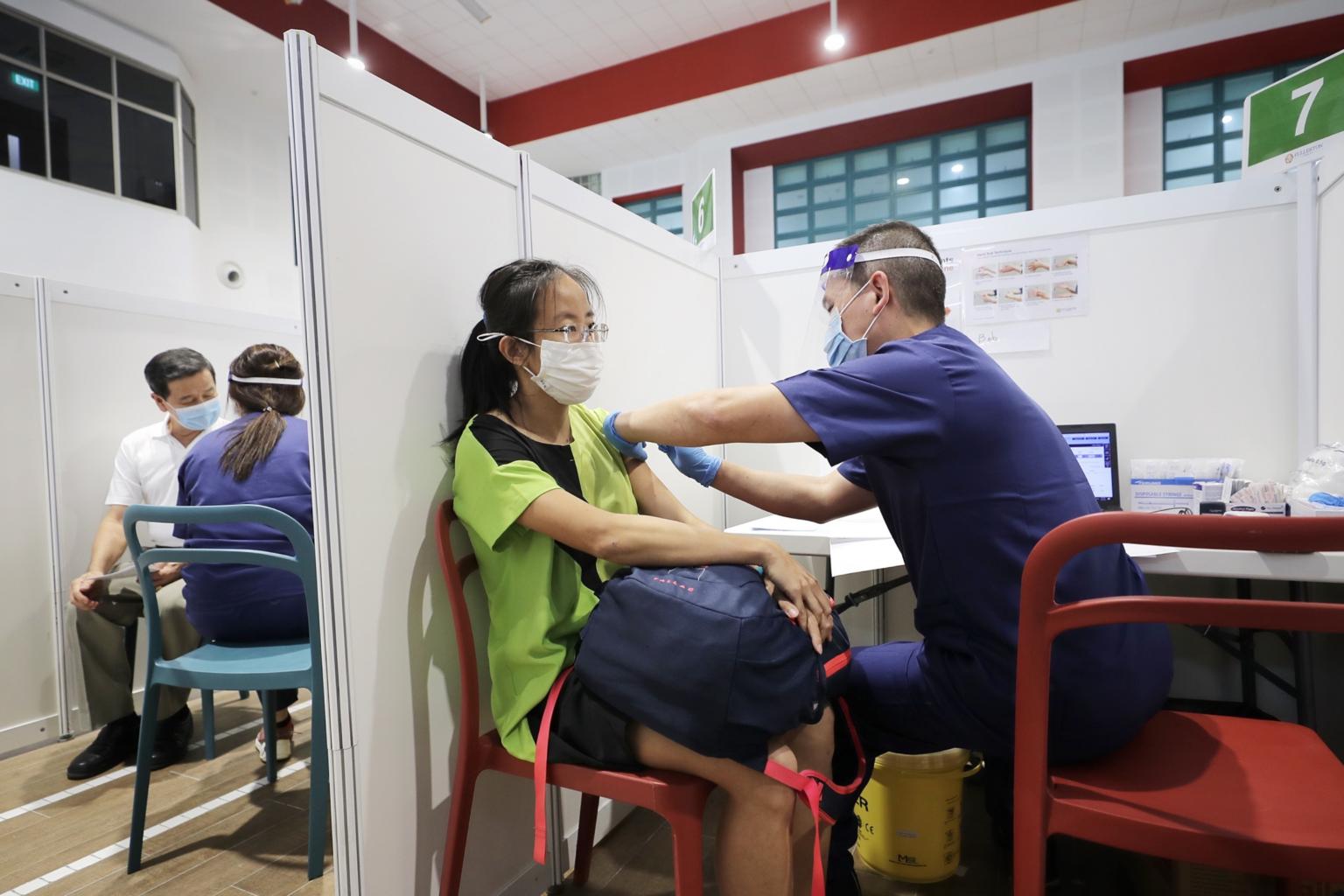67% of S'poreans willing to take Covid-19 vaccine, 20% neutral; younger ones more likely to be concerned: IPS study
Sign up now: Get ST's newsletters delivered to your inbox

Two in three Singaporeans are willing to take the Covid-19 vaccine if it were offered to them.
PHOTO: ST FILE
SINGAPORE - Two in three Singaporeans are willing to take the Covid-19 vaccine if it were offered to them, with another one in five neutral. However, about half the population still have concerns about the safety and potential side effects of the vaccine, as well as its efficacy.
Among the population, younger Singaporeans are more likely to be concerned about vaccine safety than those who are older, research by the Institute of Policy Studies (IPS) released on Monday (April 26) has found.
These were among the key findings of a working paper released by the think-tank following a year-long study on the attitudes and sentiments of Singaporeans on socioeconomic issues amid the pandemic.
The study used data from online surveys conducted over 22 phases, or "waves", from April 2020 to March this year. Each wave collected responses from more than 500 residents aged 21 years and older.
In the most recent wave in March, IPS found that 67 per cent of respondents were willing to take the vaccine if it were offered to them, with 13 per cent unwilling. The rest were neutral on the issue.
This is an improvement from early February, when 60 per cent said they would take the vaccine while 20 per cent were unwilling.
About half (53 per cent) of respondents said in the latest wave that they still had doubts over vaccine safety, including over potential side effects - though this was an improvement from 63 per cent at the start of this year.
Likewise, half of the respondents remained unsure that current vaccines would effectively prevent them from contracting the virus. Half of them were also concerned that they would be given a vaccine they did not trust - whether it is from Pfizer, Moderna or Sinovac.
More than six in 10 respondents aged 21 to 39 were concerned about the safety and potential side effects of the vaccine, compared with 48 per cent of those aged 60 and above.
IPS Social Lab's research associate Syafiq Suhaini said this could be due to targeted government media campaigns encouraging the elderly to vaccinate, on top of the "push factor" of their increased vulnerability to the virus compared with those who are younger.
The younger generation, on the other hand, have more access and exposure to online news that may highlight possible flaws in today's Covid-19 vaccines.
The Social Lab's associate director Mike Hou suggested that one way to increase vaccine willingness and take-up rate could be to focus public messaging on its potential to help life return to normal more quickly.
Social Lab's head Mathew Mathews believes that confidence levels in vaccines will go up as more people get their jabs.
"When your friends and other people tell you about how they've done it, and you don't hear any real adverse effects, more and more will end up choosing to get vaccinated," he said.


